Earth
Sign up for our newsletter
We summarize the week's scientific breakthroughs every Thursday.
-
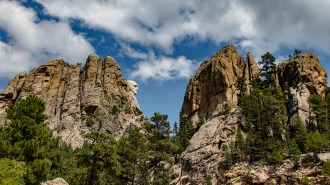 Earth
EarthA new book reveals stories of ancient life written in North America’s rocks
In ‘How the Mountains Grew,’ John Dvorak probes the interlinked geology and biology buried within the rocks of North America.
-
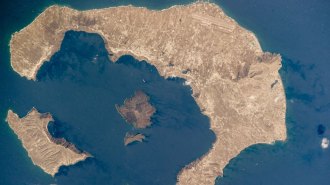 Earth
EarthGreece’s Santorini volcano erupts more often when sea level drops
During past periods of lower sea levels, when more of Earth’s water was locked up in glaciers during ice ages, the Santorini volcano erupted more.
-
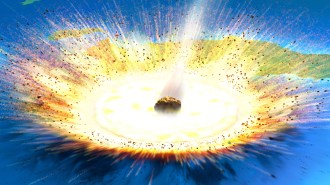 Earth
EarthDinosaur-killing asteroid may have made Earth’s largest ripple marks
A tsunami created by the Chicxulub impact could have formed giant ripples found in rock under Louisiana, a new study finds.
By Nikk Ogasa -
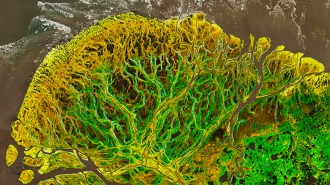 Climate
ClimateA stunning visualization of Alaska’s Yukon Delta shows a land in transition
Water and ice helped form the Yukon River’s delta. Now, climate change is reshaping it.
-
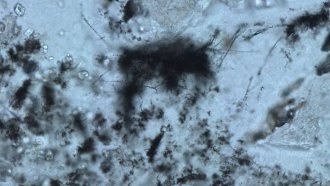 Paleontology
Paleontology3.42-billion-year-old fossil threads may be the oldest known archaea microbes
The structure and chemistry of these ancient cell-like fossils may hint where Earth’s early inhabitants evolved and how they got their energy.
-
 Animals
AnimalsHow intricate Venus’s-flower-baskets manipulate the flow of seawater
Simulations show that a deep-sea glass sponge’s intricate skeleton creates particle-trapping vortices and reduces the stress of rushing water.
By Nikk Ogasa -
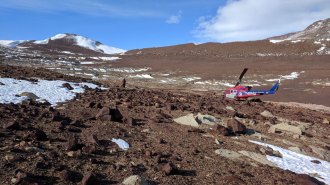 Microbes
MicrobesMissing Antarctic microbes raise thorny questions about the search for aliens
Scientists couldn’t find microbial life in soils from Antarctica, hinting at a limit for habitability on Earth and other worlds.
By Elise Cutts -
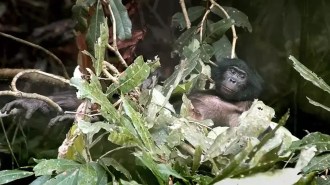 Animals
AnimalsClimate change may be leading to overcounts of endangered bonobos
A changing climate in Congo is affecting how scientists count bonobos’ nests, possibly skewing estimates of the great ape population, a study suggests.
By Pratik Pawar -
 Earth
EarthMixing trees and crops can help both farmers and the climate
Agriculture is a major driver of climate change and biodiversity loss. But integrating trees into farming practices can boost food production, store carbon and save species.
-
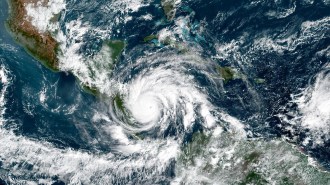 Climate
ClimateHurricanes may not be becoming more frequent, but they’re still more dangerous
A new study suggests that there aren’t more hurricanes now than there were roughly 150 years ago.
-
 Climate
ClimateThe first step in using trees to slow climate change: Protect the trees we have
In all the fuss over planting trillions of trees, we need to protect the forests that already exist.
By Susan Milius -
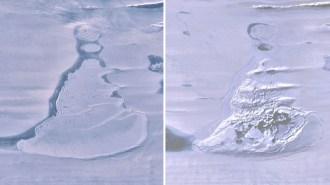 Earth
EarthSatellites show how a massive lake in Antarctica vanished in days
Within six days, an Antarctic lake with twice the volume of San Diego Bay drained away, leaving a deep sinkhole filled with fractured ice.